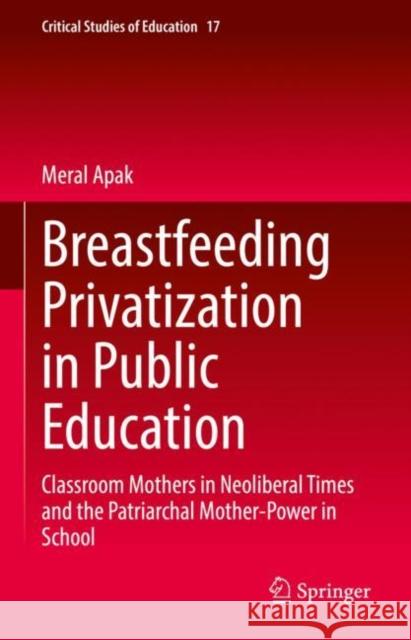Breastfeeding Privatization in Public Education: Classroom Mothers in Neoliberal Times and the Patriarchal Mother-Power in School » książka
topmenu
Breastfeeding Privatization in Public Education: Classroom Mothers in Neoliberal Times and the Patriarchal Mother-Power in School
ISBN-13: 9789811902598 / Angielski / Twarda / 2022
Breastfeeding Privatization in Public Education: Classroom Mothers in Neoliberal Times and the Patriarchal Mother-Power in School
ISBN-13: 9789811902598 / Angielski / Twarda / 2022
cena 441,75
(netto: 420,71 VAT: 5%)
Najniższa cena z 30 dni: 424,07
(netto: 420,71 VAT: 5%)
Najniższa cena z 30 dni: 424,07
Termin realizacji zamówienia:
ok. 22 dni roboczych
Dostawa w 2026 r.
ok. 22 dni roboczych
Dostawa w 2026 r.
Darmowa dostawa!
This book unveils women’s empowerment as mothers as a notion in the school system that reinforces patriarchy rather than weakening it. It discusses how empowerment is a contested notion, even though it is mostly praised in terms of women’s emancipation. This book explores the concept that although women are breastfeeding education as mothers in the neoliberal education system, they are not necessarily doing so as a self-sacrifice as one may generalize in the context of neoliberal economy. Instead, this book argues that women are doing this as a means of investment for gaining a sense of individual power, which ironically, reinforces patriarchal values. It presents demonstrative and descriptive practical incidences in the field.











